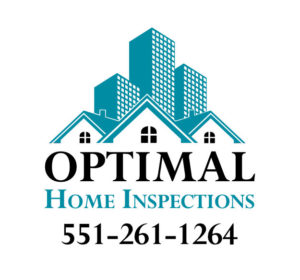Rental Inspections document property conditions and other issues which helps to:
• Expedite the leasing process
• Identify damage and required repairs
• Eliminate deposit disputes
• Justify deposit withholdings
• Prevent litigation
• Document tenants maintenance habits
The following services are available for residential and commercial properties and can be customized to suit your needs.
Pre-Occupancy / Move-In Inspection
Also known as a Pre-Lease Inspection, this inspection starts the documentation process and is designed to protect all parties prior to a new tenant entering into a lease agreement; or an owner turning his investment over to a property management company; or a property manager thinking of representing an owner’s property. The report acts as the primary reference for the property’s condition prior to renting and can significantly reduce the chance of related disputes at the end of the lease.
Post-Occupancy / Move-Out Inspection
Also know as a Post-Lease Inspection, this inspection is used to document the condition of the property at the time the leasing agreement is terminated or when the owner and property manager end their contract. The move-out report can be compared to the initial/move-in inspection report so that adjustments can be made with regard to any security deposit. The report also acts as a repairs list which is useful for getting quotes from contractors, budgeting and working towards getting the property ready for re-leasing.
Routine / Maintenance Inspection
Routine Inspections are meant to help landlords and property managers take a preventative approach to home maintenance. It can be conducted on a quarterly, bi-annual or annual basis. The inspectors primary goal is to document any damages caused by normal wear and tear as well as those brought on by bad maintenance habits and/or behavior that is prohibited in their lease. This gives homeowners a chance to handle repairs before they become worse and cost more to fix. Additionally, owners/managers will be armed with the information they need to communicate any concerns effectively and work with the tenant towards resolving problems.
Drive-by Inspection
An inspector can drive-by your property on a date and time you prefer to look out for specific issues you’re concerned with and document their findings. This service can be used to discover lease violations (e.g., unapproved pets, over-occupancy, illegal activities, etc.); learn about the exterior upkeep of the home; and various other issues that may be affecting your property and peace of mind. Your report can serve as evidence when communicating with tenants and/or during legal proceedings. The inspector will use discretion and never enter the property therefore tenant notification is not required by law.
For either type of service, our certified inspectors will perform a thorough inspection. Afterwards, the report will be delivered via email same-day or within 24-48 hours depending on the size and/or complexity of the inspection. Reports will include photos and a full description of the property’s condition as well as suggestions for improvements that can enhance the rental value and preserve its integrity, safety and habitability.
I am always amused by the responses I receive from real estate investors when I ask them when they had last inspected their properties. It is obvious from their contorted facial expressions that they most likely have never “formally” inspected their properties.
While preforming “safe and clean inspections” during a tenancy is important, ensuring that “move-in” and “move-out” inspections are performed at the beginning and end of a rental relationship can mean the difference between you as the landlord retaining all or a portion of the security deposit to compensate you for damages or losing it (possibly with triple damages) at the hands of a judge.
WHICH ONE SOUNDS BETTER TO YOU?
I am a huge proponent of inspections. At the beginning, the end, and the entire time during the rental relationship.
Regrettably, many landlords and way too many property managers have not assigned the same degree of importance to “inspections” as I have. And this in my opinion, puts them at the mercy of the tenants, and if they are dealing with savvy tenants it will get painful!


